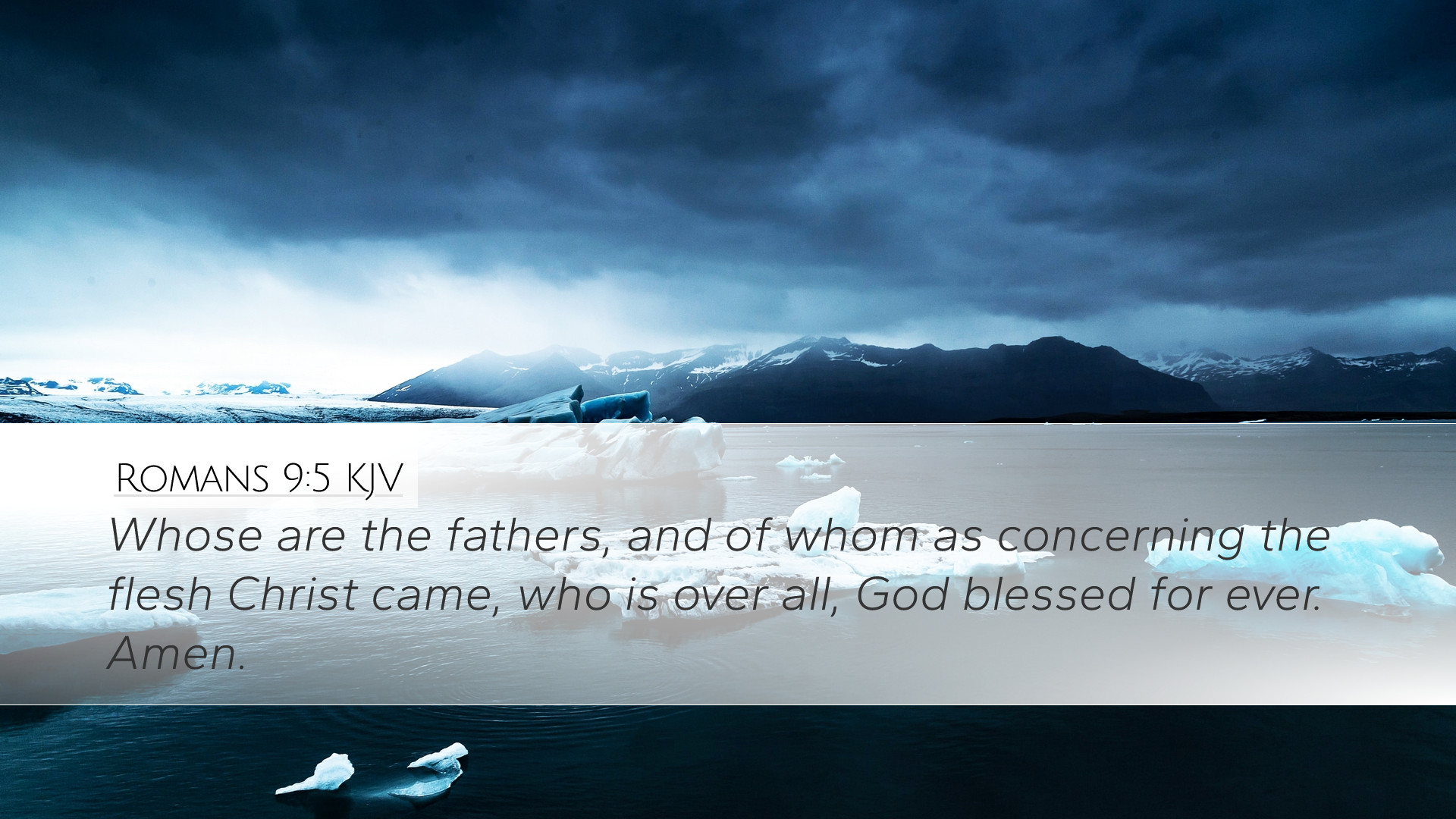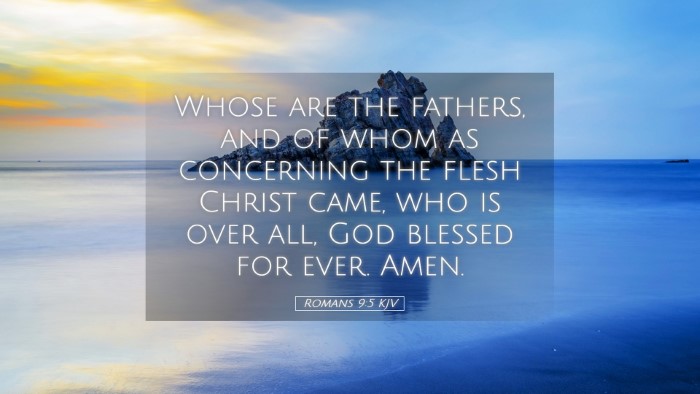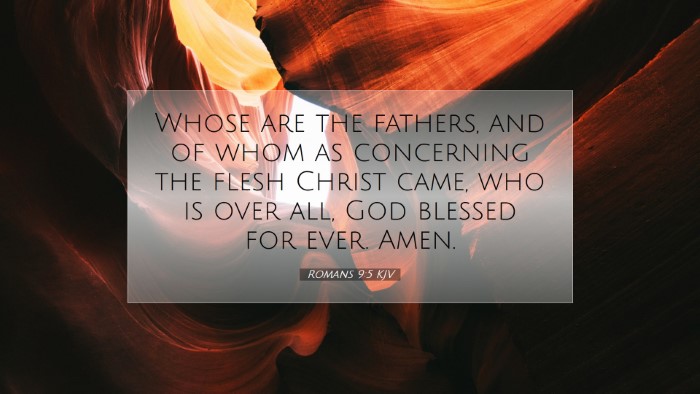Commentary on Romans 9:5
Romans 9:5 states:
"Whose are the fathers, and of whom as concerning the flesh Christ came, who is over all, God blessed for ever. Amen."
Context and Importance
This verse stands as a profound statement in the context of Apostle Paul’s exposition on the sovereignty of God and the role of Israel in salvation history. Paul emphasizes the distinguished heritage of the Israelites and climaxes this heritage with the Incarnation of Christ, who fully embodies both divine and human natures.
Insights from Public Domain Commentaries
Matthew Henry's Commentary
Matthew Henry emphasizes that Paul is reflecting on the illustrious lineage of Jesus Christ, highlighting how He is "of the fathers." The forefathers, such as Abraham, Isaac, and Jacob, are the patriarchs through whom the promises of God were given. This point underscores the Jewish context from which Jesus emerged.
Henry also reiterates the dual nature of Christ, pointing out that while He descended from Israel according to the flesh, He is also "over all, God blessed for ever." This indicates the preeminence of Christ in both His humanity and deity. Henry’s commentary encourages readers to see the divinity of Christ in light of His earthly lineage and to appreciate the theological implications of this relationship.
Albert Barnes' Notes on the Bible
Albert Barnes provides a detailed examination of the implications of Christ coming "according to the flesh." He argues that this phrase emphasizes the reality and authenticity of Christ's human experience, which is crucial for theological discussions about His role as the Mediator between God and humanity. Barnes notes that understanding Christ as both fully human and fully divine is essential in grasping the mystery of the Incarnation.
Moreover, Barnes discusses the reference "God blessed for ever," suggesting that it not only underscores the exalted nature of Christ but also serves to affirm His divine attributes. Barnes emphasizes the continuity and fulfillment of divine promise through Christ, serving as a testament to God's unwavering faithfulness.
Adam Clarke's Commentary
Adam Clarke expands upon the significance of the phrase "whose are the fathers." He asserts that the fathers refer to the patriarchs, which establishes a rich historical legacy that points directly toward Christ’s advent. Clarke points out the importance of this legacy in the Jewish faith, which serves as a foundation for the New Covenant initiated by Christ.
Clarke also delves into the dual aspects of Christ's nature. He suggests that the glory attributed to Christ as "over all" emphasizes His supreme authority and dominion over creation. Clarke posits that acknowledging Christ's divine status is crucial for understanding the transformative power of the Gospel and the implications for salvation. He concludes with a doxological affirmation of Christ's eternal reign, amplifying the importance of recognizing His rightful place in Christian faith.
Theological Reflections
The significance of Romans 9:5 lies in its encapsulation of both Christ’s human and divine nature, which has profound implications for Christian soteriology, christology, and the understanding of covenantal theology.
Understanding Christ's Humanity
The emphasis on Christ's lineage provides a foundation for understanding the relational aspect of His incarnation. He entered into the human experience sharing in our struggles, sorrows, and joys, as highlighted in the commentaries. This makes His redemptive work deeply personal.
The Divine Nature of Christ
The declaration that Christ is "over all" positions Him as sovereign, a necessary aspect of His deity that affirms the hope that believers hold. He is not only a historical figure but the living God who exercises authority over all aspects of life and creation. This principle is central to the Christian faith and the believer’s assurance in His promises.
Application for Ministers and Theologians
For pastors, students, and theologians, Romans 9:5 serves as a rich text for preaching and teaching. When communicating the significance of Jesus Christ's dual nature, ministers can draw upon this verse to elucidate the fulfillment of the Old Testament promises and the establishment of a new covenant through His life, death, and resurrection.
Furthermore, understanding this verse encourages deeper theological discussions regarding the Incarnation, making it vital for biblical scholars in addressing contemporary beliefs about Christ’s nature, authority, and His plan for salvation.
Conclusion
Romans 9:5 is a cornerstone verse that encapsulates the coexistence of humanity and divinity in Christ. By integrating insights from notable public domain commentaries, we gain a comprehensive understanding of its theological depth and richness. As we contemplate this verse, may we deepen our appreciation for the mystery of the Incarnation and the significance of Christ in our faith journey.


